MEPC 73: Briefing On Ban on Use and Carriage of Heavy Fuel Oil by Arctic Shipping
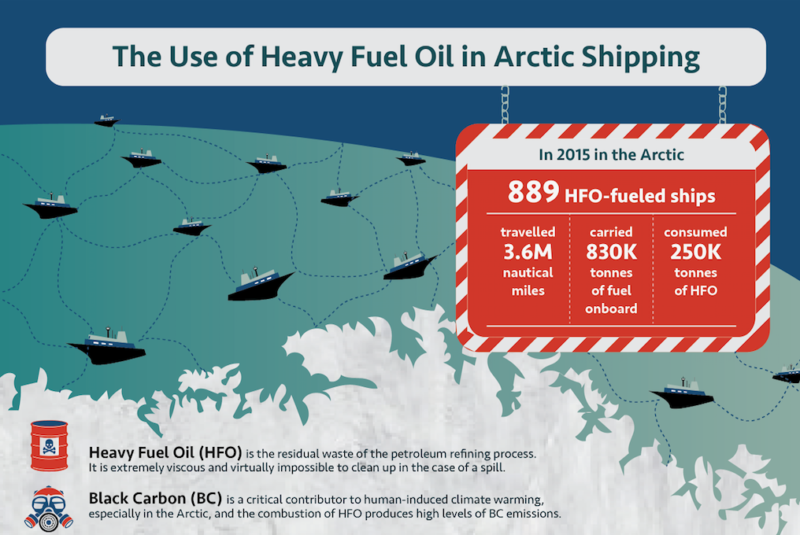
Briefing for journalists interested in covering the work on the ban of heavy fuel oil from Arctic shipping at the IMO’s MEPC73 meeting in London, October 2018
Heavy Fuel Oil use in the IMO Polar Code Arctic by Russian flagged Ships 2015
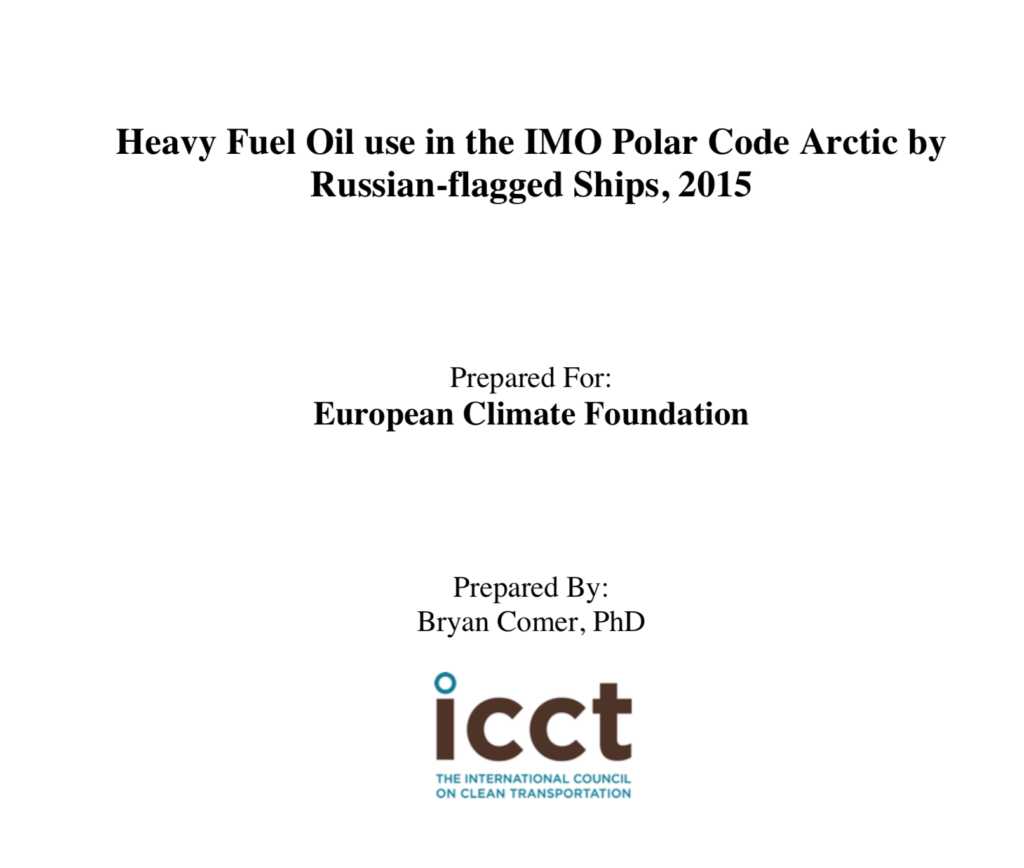
Russia has the longest Arctic coastline and has invested heavily in Arctic ports and infrastructure, so it will come as no surprise that most of the ships operating in the Arctic are Russian-flagged and that these ships use and carry large amounts of fuel, including HFO
Infographic: The Use of Heavy Fuel Oil in Arctic Shipping & Predominant Flag States in the Arctic

This infographic explores, how and where heavy fuel oil (HFO) is being used in the Arctic – and who is using it.
Infographic: Impact assessment and an Arctic HFO ban
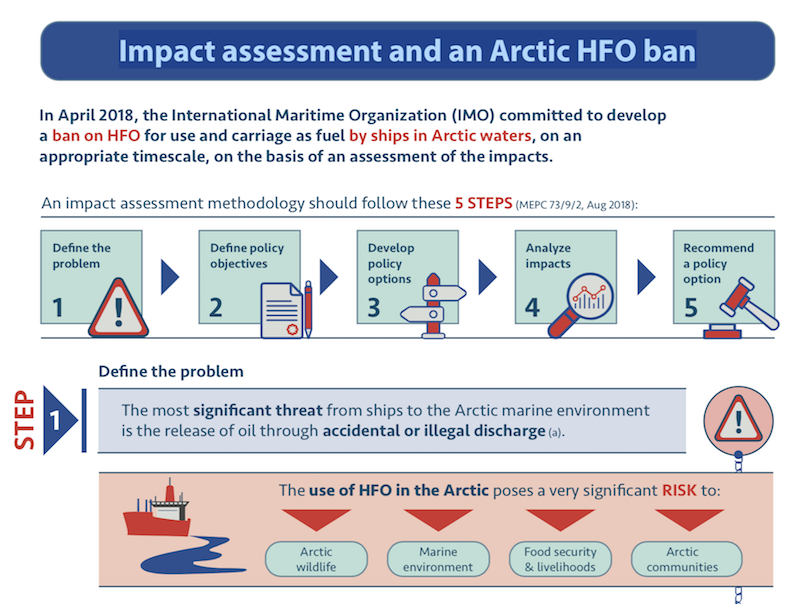
In April 2018, the International Maritime Organization (IMO) committed to develop a ban on HFO for use and carriage as fuel by ships in Arctic waters, on an appropriate timescale, on the basis of an assessment of the impacts.
An impact assessment methodology should follow these 5 STEPS
Would you forgo a glass of wine to protect the Arctic and our climate?
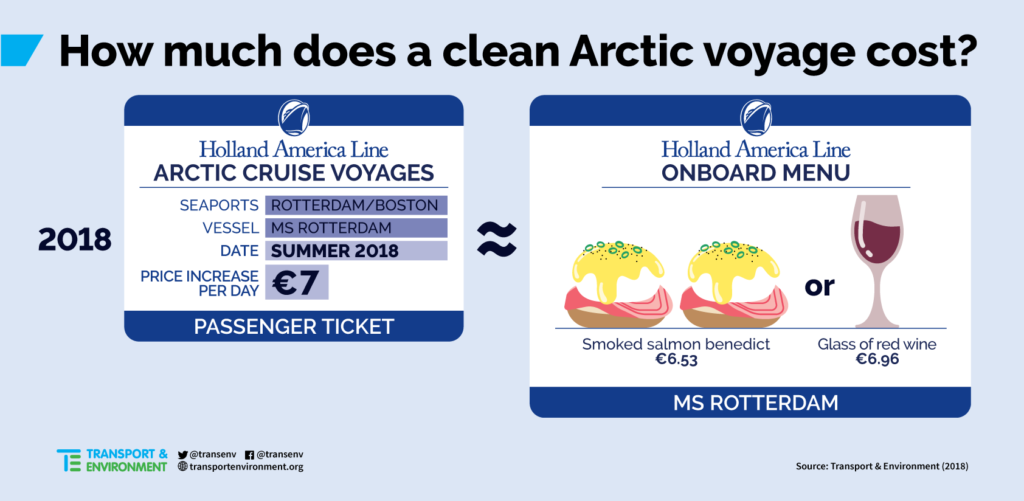
It would cost passengers just the price of a glass of wine a day if cruise ships would stop burning highly polluting heavy fuel oil (HFO) in the fragile Arctic environment.
“So Shipping Emissions Will Cool the Arctic? Not Exactly… and Not Without Costs”

Clean Arctic Alliance Response and Clarifications regarding Climatic responses to future trans‐Arctic shipping
Greenland Government Agrees to Back Arctic HFO Ban: Clean Arctic Alliance Response
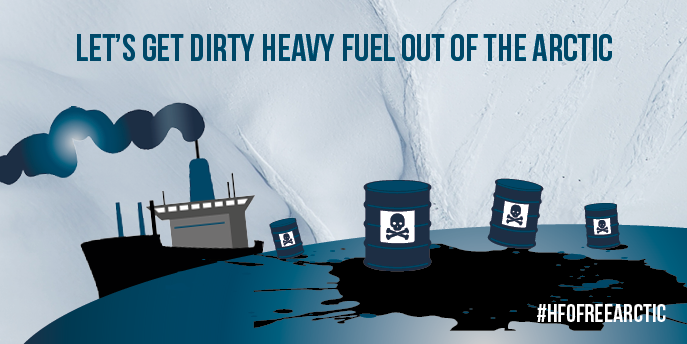
“We applaud Greenland’s government for speaking up for the much needed protection of the Arctic’s nature and communities, by supporting the banning the world’s most polluting fuel – heavy fuel oil. After spending time measuring air pollution from cruise ships burning HFO in Greenland this summer, I’m very relieved that Greenlandic politicians support banning it.”
Who Is Ready for an Arctic Ban on HFO?

Clean Arctic Alliance has publicly called on shipping companies already carrying cargo across the Arctic to be transparent about their choice of fuel. While the IMO’s Polar Code already recommends ship operators “not to use or carry heavy fuel oil in the Arctic”, it is not binding. With an Arctic HFO ban on the way, The Clean Arctic Alliance wants to know – which shipping companies will become flagships for a HFO Free Arctic?
Clean Arctic Alliance Asks Cosco to Speak Up On Arctic Fuel Choice

The Clean Arctic Alliance calls on COSCO to make public the nature of the fuel that the Tian’en has used and carried through Arctic waters
CE Delft: Residuals bunker fuel ban in the IMO Arctic waters: An assessment of costs and benefits
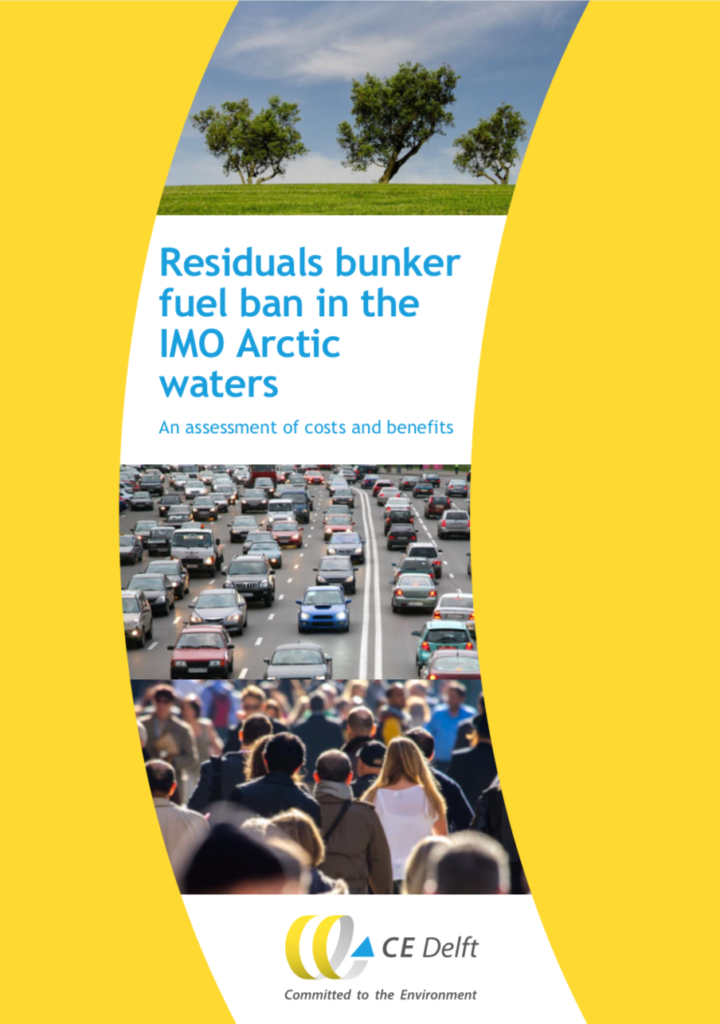
The IMO has agreed to start working on the development of a ban on the use and carriage of heavy fuel oil (HFO) as fuel by ships in Arctic waters. Such a ban would not prohibit the carriage of heavy grade oil in bulk as cargo, but would require ships sailing in the Arctic waters to use and carry non-HFO bunker fuels only. This would lead to a reduction of black carbon emissions and reduce costs and damages in case of an oil spill, but also impose additional costs on ship owners/operators that otherwise would have used and/or carried HFO bunkers or blends thereof for on-board combustion purposes.

